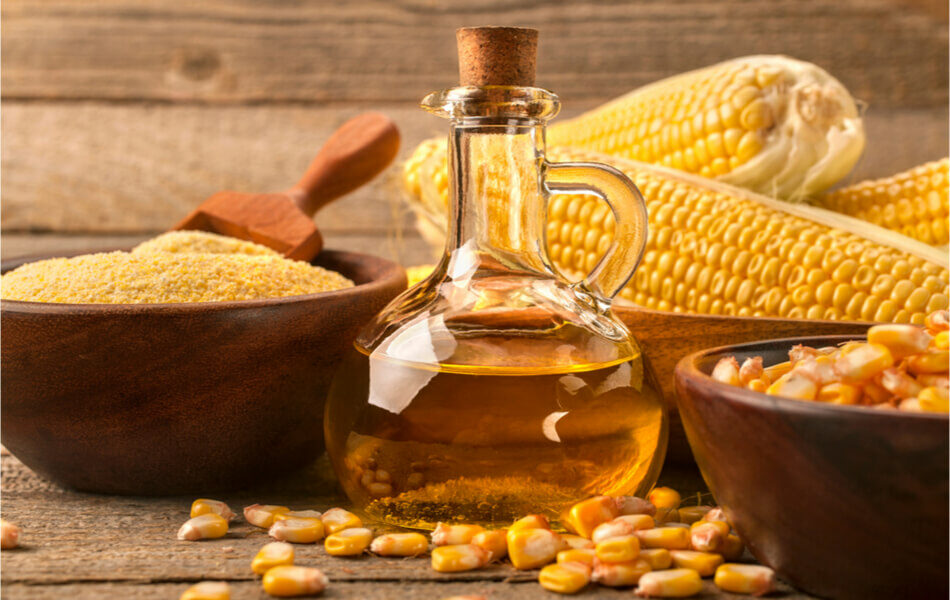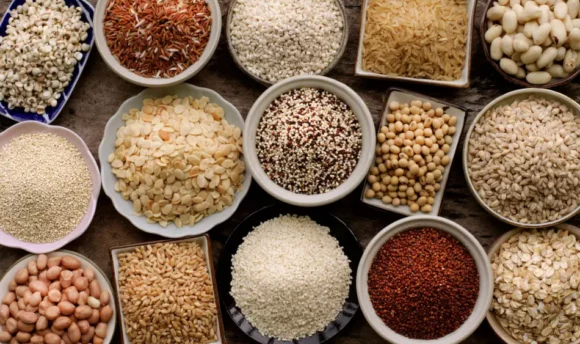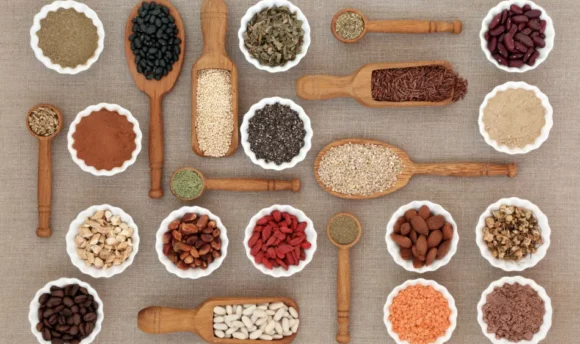Is Corn Oil Healthy? Nutrition and Calories
Corn oil is a popular cooking oil, but is it really as healthy as it seems?

Choosing the right oil for your cooking may leave you confused.
Corn oil is widely used because it is cheap, flavorless, and has a high smoke point, which makes it a good choice for deep frying. But is it safe to consume corn oil?
In this article, we are going to take a look at its production process, benefits, disadvantages, and nutrition content.
Is Corn Oil Healthy?
It is hard to say whether corn oil is healthy, as it depends on the context in which it is consumed.
Corn oil is high in monounsaturated and polyunsaturated fats, which have been linked to improved heart health. However, it also contains large amounts of omega-6 fatty acids, which can promote inflammation in the body if consumed in excess.
Additionally, corn oil is a processed food and can contain unhealthy additives. For these reasons, it is best to consume it in moderation.
How Is Corn Oil Made?
Corn oil is extracted from the germ of corn by either a hydraulic or a screw pass. It is valued for its neutral and light color.
It is regarded as one of the refined vegetable oils due to the lengthy process it passes through before being sold in the market. The process starts with corn kernels undergoing methods like pressing, hexane extraction, deodorization, and winterization to improve the taste, look, and smell.
An expeller machine where the seeds are put is placed on high heat. The seeds pass through a barrel cage that separates the oil from the waste. It leads to the production of unrefined oil, which is then treated with a solvent to extract pure corn oil.
Then, the pure oil is refined to eliminate some chemical compounds and deodorized to remove any odor and also lighten the color.
Finally, the winterization process gets rid of any leftover waxes and solids from processing, which is normally done under high heat.
Corn Oil Benefits
It is rich in phytosterols
Corn oil majorly contains phytosterols, which are derived from plants. It contains a higher phytosterol content than several other cooking oils, such as canola oil. They may help reduce high cholesterol levels, known to be a risk factor for heart disease.
Also, compared to all other cooking oils, such as olive oil, sunflower oil, and peanut oil, corn oil is significantly rich in phytosterol content, especially phytosterol beta-sitosterol.
It promotes vision health
There are ingredients contained inside corn oil, including flavonoids and antioxidants like lutein, which can reduce free radical activity in the body. Lutein may help protect vision health and prevent the development of cataracts.
It promotes heart health
Corn oil is made up of heart-healthy compounds, like vitamin E, phytosterols, and linoleic acid. This composition may help decrease the occurrence of heart disease.
Vitamin E is a highly effective antioxidant; therefore, eating a diet high in this nutrient may help prevent oxidative damage to your heart and blood vessels caused by excess free radicals.
It also plays a role in promoting immune function, skin health, cardiovascular function, eye health, and other important body functions.
Disadvantages of Corn Oil
It leads to obesity
The linoleic acid content of corn oil is a precursor to arachidonic acid, and this acid causes weight gain by activating the endocannabinoid system.
Due to corn oil being high in calories, excessive use can typically increase your daily caloric intake, which will easily compromise your weight loss goals.
With obesity comes other health issues such as high blood pressure, high blood sugar, insulin resistance, diabetes, etc.
It may contain toxins
There may be a chance of toxicity in corn oil because of high levels of pesticides and herbicides in agricultural practices in various countries.
This may have a bad effect on your liver and kidneys. It is advisable to know where your purchased corn oil is coming from.
It can contribute to weight gain
Consuming excessive amounts of corn oil can lead to a variety of health problems, including weight gain. The high levels of calories in corn oil can quickly add up, leading to an increase in body fat.
Eating too much of this oil can also cause blood sugar levels to spike, leading to fatigue and energy crashes. Furthermore, the high fat content can contribute to obesity and diabetes when consumed in large quantities.
Nutritional Facts
It is imperative to read the nutritional labels on any products purchased, especially edibles like vegetable oil.
Nutritional table (per 100g)
| Calories/Nutrient | Amount |
| Calories (kcal) | 900 |
| Net Carbs (g) | 0 |
| Fiber (g) | 0 |
| Sugar (g) | 0 |
| Fats (Total) | 100 |
| Cholesterol (mg) | 0 |
Low in vitamins and minerals
In 100g of corn oil, there is 14.3mg of vitamin E, which is just 95% of the required dose (15mg) for an adult, according to the Harvard School of Public Health. There are only limited levels of vitamin A.
Vitamin E has antioxidant properties, so a diet high in this nutrient may protect the heart and blood vessels.
High in fats and calories
Corn oil contains 12.9g of saturated fat, 27.6g of monounsaturated fat, and 54.7g of polyunsaturated fat per 100g serving.
100g of corn oil contains 900 calories, so it is not recommended to consume more than 1 tablespoon (equivalent to 125 calories) of corn oil per day.
Low in cholesterol
With 0mg of cholesterol in 100g, corn oil is safe for your consumption.
In fact, corn oil has a great amount of cholesterol-blocking plant sterols, and it can help lower cholesterol two times more for adults with high cholesterol levels when consumed daily as part of a low-saturated-fat and low-cholesterol diet.
A Word From Our Nutritionist
Corn oil is composed of high amounts of polyunsaturated fats, which lower cholesterol and are regarded as a key part of heart health.
Although, this oil can also cause inflammation and damage to your liver. Just like other vegetable oils such as soybean oil, it is linked to obesity and potential toxicity.
Typical Western and North American diets are high in refined cooking oils like corn oil, which are are high in inflammatory omega-6 fatty acids. Instead of going for corn oil, vegetable oil, or canola oil, opt for healthier oils like avocado oil, coconut oil, and sesame oil.
FAQs
Corn oil is good for frying due to its high smoke point of 450 degrees.
It depends on what you are looking for. If you are looking for an oil with a higher smoke point, then corn oil would be the better option. However, if you are looking for an oil with higher levels of beneficial fatty acids and antioxidants, then olive oil would be the better choice.
The largest percentage of fatty acid molecules in corn oil are polyunsaturated fatty acids, while the others are composed of monounsaturated and saturated fatty acids.
Like any other corn oil, Mazola oil is high in omega-6 fatty acids, which can contribute to inflammation in the body if consumed in excess. On the other hand, it is low in saturated fat and cholesterol-free, making it a healthier choice than some other types of oil. Ultimately, it is best to use Mazola corn oil in moderation as part of a balanced diet.
Conclusion
Corn oil has healthy components like phytosterols and vitamin E, which can help with oxidative stress and reduce inflammation.
But just because corn oil contains some good components doesn’t mean you should consume it regularly. This oil also contains a lot of fat, calories, and high levels of omega-6 fatty acids which cause inflammation when used in excess.
It is recommended to use a small amount of the oil when cooking, as well as to measure it to confirm the portion.

















































 Select your language:
Select your language: 








